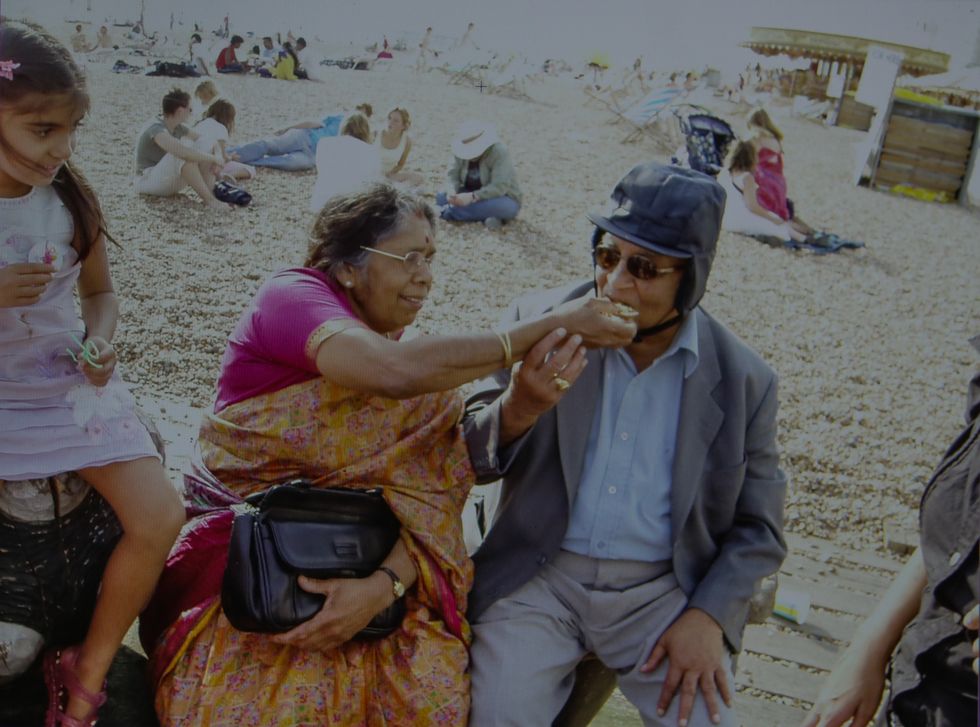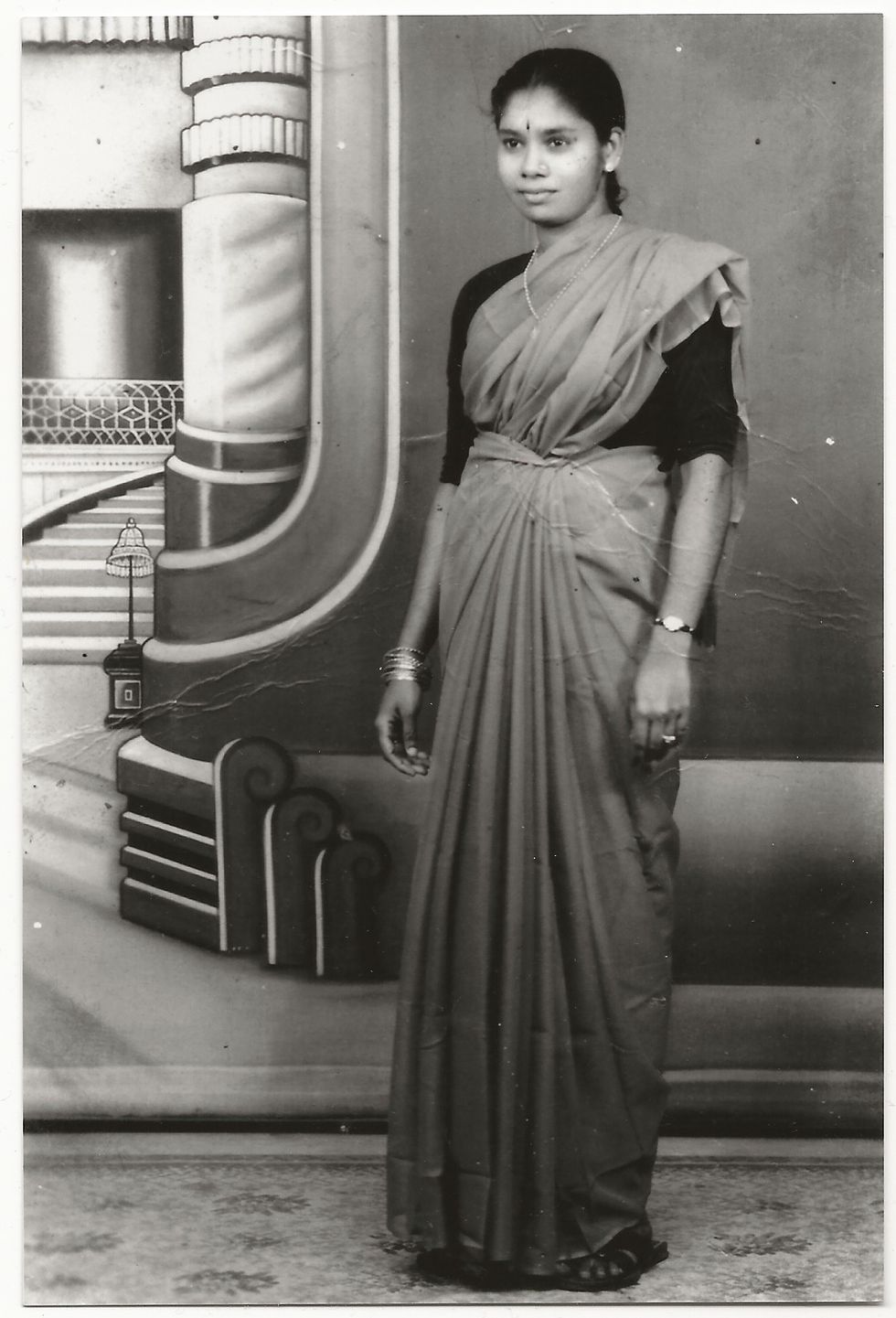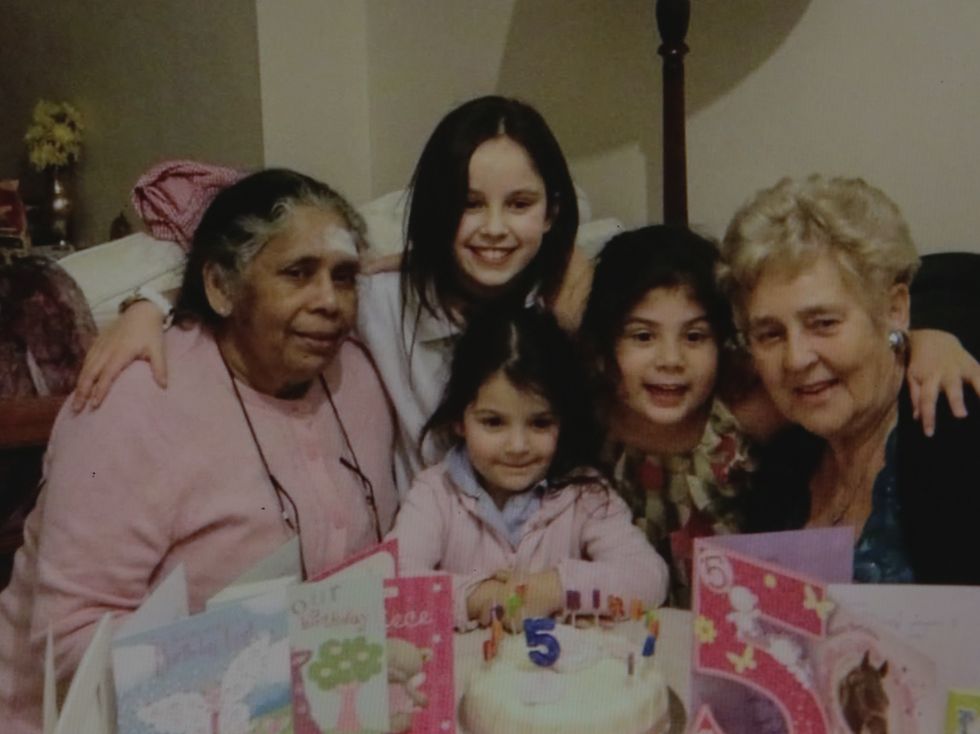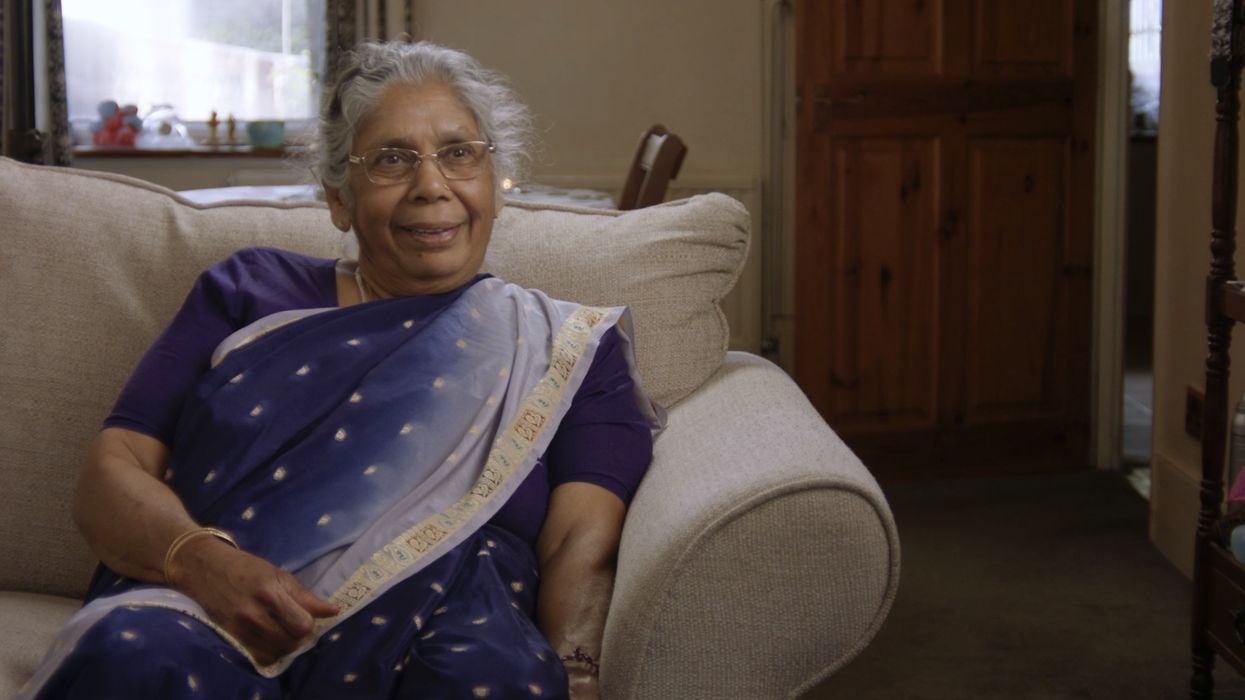AN ASIAN migrant who arrived in the UK without speaking a word of English has described her experience of assimilation in an award-winning documentary released last month.
Nages Amirthananthar, 83, features in Fearless, which tells the stories of six women who left their homes as young adults to build new lives in Britain.
In an interview with Eastern Eye, she said, “I still struggle to speak properly when my children or grandchildren talk fast or use difficult words. They are very smart. I understand a lot, and I can read and write, but speaking has always been hard for me. That’s why I never had much confidence. I think if there had been proper English courses when I arrived, it would have helped.”

Others who narrate their experiences of migration in the film are Sheila Daniel, Aileen Edwards, Maggie Kelly, Anne Gaché, Nashattar Kang; all are now aged between 80 and 92.
Their stories combine humour and inspiration as they reflect on the courage it took to abandon familiar surroundings and forge fresh beginnings in a foreign country. Amirthananthar moved to Scunthorpe in 1975.
She said, “It was difficult to express how I felt, because everything was so new. I had lived in a village in Hartland, and life in the UK was completely different – everything had changed: the lifestyle, the shopping, all of it.

“My husband [Dr RS Amirthananthar, a GP] came before us on a scholarship. He was very calm and supportive, always guiding me on what to do.”
Their family moved to a small village near Hull and bought their first home there. A few of her husband’s relatives lived in Warrington and Leicester.
Originally from Jaffna in Sri Lanka, Amirthananthar could not understand why some people used the racial slur “P*** “to describe her, since she was from the island nation, and not from Pakistan.
She said, “I was about 31 or 32 years old at the time. I couldn’t manage much on my own in the beginning. I had studied in school, but I didn’t speak English well. I could understand it, but speaking was difficult. My husband encouraged me to learn. I took classes at a local ladies’ school and improved.

“Our neighbour in Scunthorpe was a lovely white lady. She was very kind, always offering to help. She even helped with laundry. There weren’t any Asian women nearby to support me.”
Amirthananthar recalled how she was initially wary about moving to England due to concerns about the cold climate.
However, her husband persuaded her by arguing that their children would have a better life in the UK. The couple were married for 43 years until her husband’s death 17 years ago.
They have five children (the eldest son is 59) and nine grandchildren.
Amirthananthar said, “English people are very nice. I always liked mixing with them. When I first arrived, I used to go to coffee mornings with the neighbours – mostly English people, because there were very few Asians in the neigbhourhood. We’d take turns hosting, just chatting and spending time together.”
She revealed her cooking skills helped her to “navigate the tough times” and that many people were many fans of her dishes, and that she was encouraged to start her own restaurant.
She said, “I like doing things for others, especially cooking. That’s how I’ve made so many friends. Even now, people send me Christmas cards and photos. Many people asked me to start a restaurant. They said they’d come and help. But my husband didn’t want me to cook for others – only for the family.”
At the time there was little or no government support for migrants in Britain, but Amirthananthar said language classes or training programmes would have made a significant difference, particularly in building confidence among newcomers.
She said, “Many people today already speak the language when they arrive in the UK, which helps. Once they know the language, they can integrate and contribute to society.”
Amirthananthar described her experience of watching Fearless as “very good,” though she admitted to feeling somewhat shy during the screening.
She was particularly caught off guard when asked (in the film) if she had enjoyed herself before marriage. Her response was that she had. “Everyone laughed at that bit, and I was embarrassed,” she recalled.
The experience of seeing her story portrayed in a film came as a shock. “I never thought my story would appear in a film,” she said, adding that women of her generation are not accustomed to seeing themselves represented in this way.
Her naturally open personality meant she answered all questions honestly during filming, though she later wondered whether she had been too candid – especially regarding her admission that she was happier before marriage.
Her children, however, reassured her that honesty was the right approach.
Amirthananthar said she hoped young viewers will understand that love has always been central to her character.
“Calm down, darling. Don’t let your emotions take over,” is advice she regularly gives to her children and grandchildren.
Perhaps this helped her at times when dealing with her late husband’s occasionally short temper. “When you live with love, you must be patient,” she reflected, summarising the philosophy that has guided her life.
She added, “Do your duty properly. Don’t be afraid of anyone. Be honest and calm. Do your best and don’t ignore your responsibilities. That’s what I’ve done my whole life – and I still do.”
She emphasised the importance of selfreliance, adding: “Be honest and work hard. That’s the most important thing. You have to do your best. I don’t like when people claim benefits they don’t deserve. This is our land now – you should work for your living, not rely on others.”





